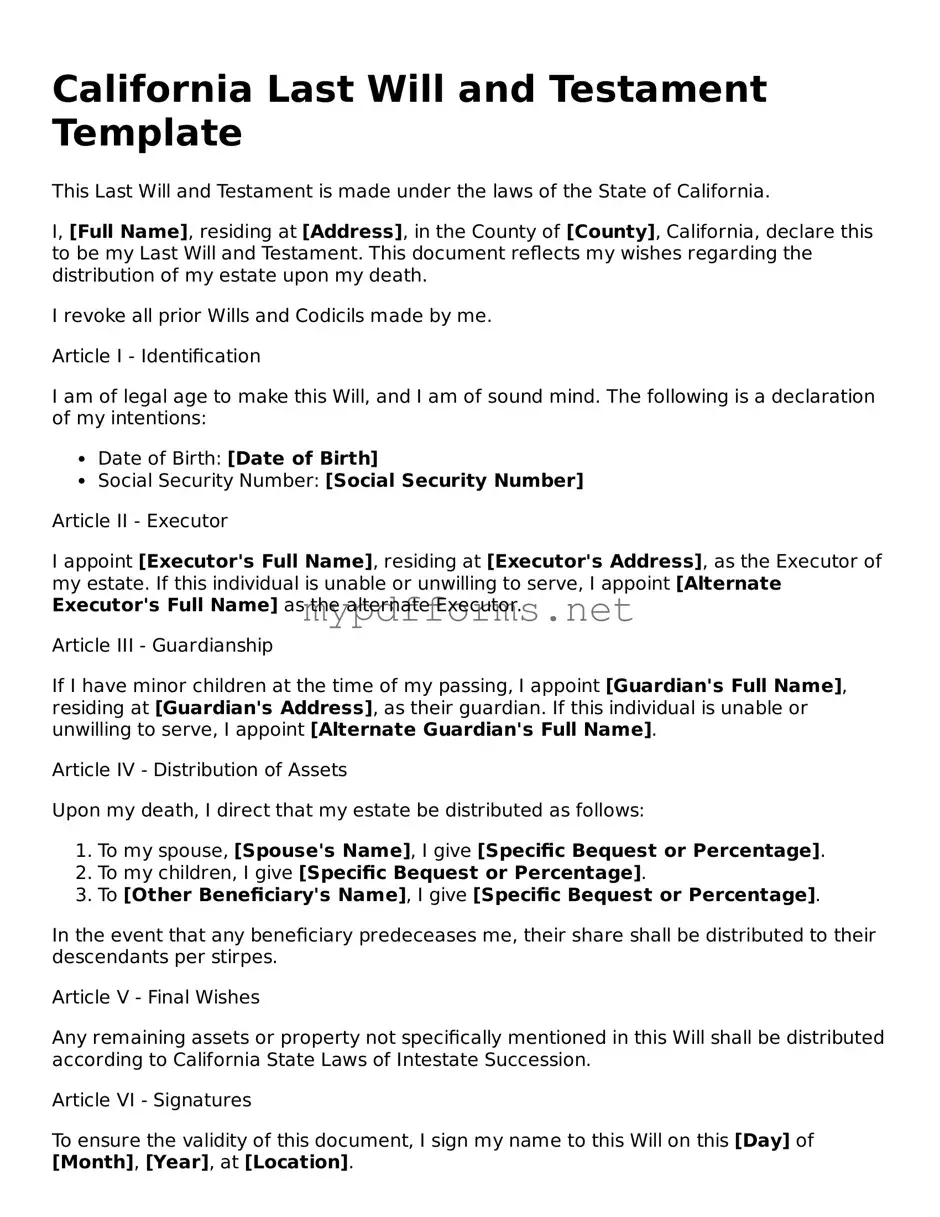The California Last Will and Testament is similar to a Living Will. A Living Will outlines an individual's preferences regarding medical treatment in situations where they cannot communicate their wishes. While a Last Will and Testament primarily deals with the distribution of assets after death, a Living Will focuses on healthcare decisions during a person's lifetime. Both documents serve to express personal choices and intentions, though they apply to different circumstances.
Another document that shares similarities is a Trust. A Trust allows a person to transfer assets to a trustee for the benefit of beneficiaries. Like a Last Will, a Trust outlines how assets should be managed and distributed. However, a Trust can take effect during a person’s lifetime and can help avoid probate, which is a process that a Last Will typically goes through after death.
A Power of Attorney (POA) is also comparable to a Last Will and Testament. A POA grants someone the authority to make decisions on behalf of another individual, often concerning financial or legal matters. While a Last Will only becomes effective after death, a POA is active during the individual's lifetime, allowing for management of affairs if they become incapacitated.
Similarly, a Healthcare Proxy is akin to a Last Will. This document designates someone to make medical decisions on behalf of another person if they are unable to do so. Like a Living Will, a Healthcare Proxy focuses on healthcare preferences, but it also allows for a trusted individual to make those decisions, ensuring that a person's wishes are respected even when they cannot communicate them.
An Advance Healthcare Directive combines elements of both a Living Will and a Healthcare Proxy. It provides specific instructions about medical treatment preferences and appoints a person to make healthcare decisions. This document serves a similar purpose to a Last Will by ensuring that a person’s wishes regarding health care are honored, even if they are no longer able to express them.
For parents seeking additional security, the comprehensive Power of Attorney for a Child form is invaluable. This document not only provides peace of mind but also ensures that your child’s needs are met during your absence, whether for travel or other circumstances requiring temporary guardianship.
Lastly, a Codicil is related to a Last Will and Testament as it serves as an amendment to an existing will. A Codicil allows individuals to make changes or updates without drafting an entirely new will. This document must meet the same legal requirements as a Last Will, ensuring that any modifications are valid and enforceable.

